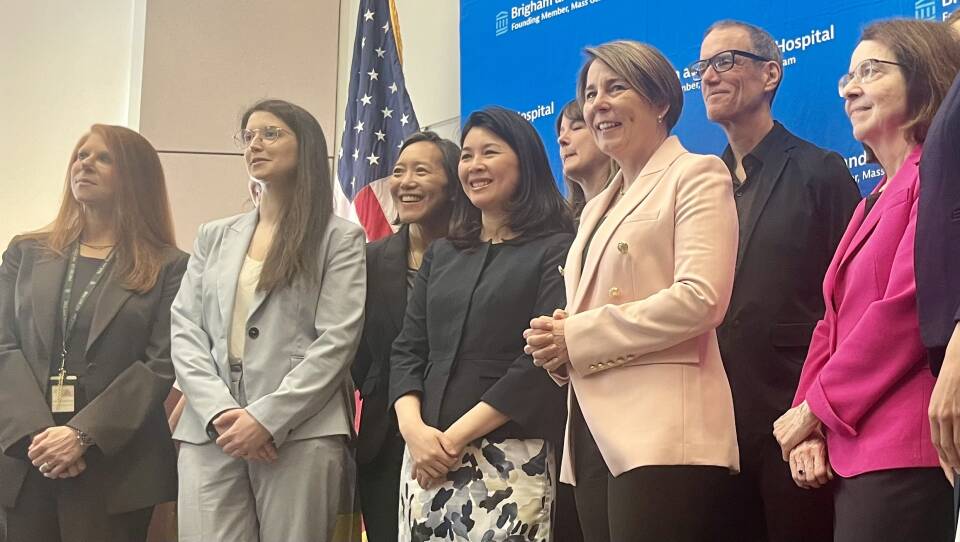Women's health is getting a big boost from Gov. Maura Healey's administration.
The governor on Tuesday announced nearly $3 million in grant money to support 15 projects , including efforts to diagnose and treat endometriosis, develop less invasive screenings for cervical cancer, and advance new technologies to better understand pregnancy risks.
Healey announced the grants during a visit to Brigham and Women's Hospital. Healey toured the hospital's Mary Horrigan Connors Center for Women's Health and Gender Biology, one of a series of stops she's making around the state to promote a sweeping economic development bill she filed last month.
“We have not done what we needed to do for women's health for centuries,” Healey said. “And I am so psyched, as your governor, that people are actually looking at this and dealing with this, because it is different.”
The bulk of the grant money, $2.6 million, comes from the Massachusetts Life Sciences Center women's health innovation program, with another $250,000 from the First Look Awards, a partnership between the life sciences center and the Connors Center at Brigham and Women's.
The Healey administration says the governor's $3.5 billion economic development bill will “reenergize” the Massachusetts Life Sciences Center to help grow and sustain what has become a major industry in Massachusetts.
The bill proposes a 10-year, $1 billion reauthorization of a life sciences initiative that began under then-Gov. Deval Patrick in 2008, including money for tax credits, workforce development programs and more.
Economic Development Secretary Yvonne Hao said the life sciences push includes “all of health care.”
“Life sciences, including the whole system. We are trying to be more ambitious, just like ARPA-H,” Hao said, referencing a new health innovation hub Massachusetts will host for a federal research agency. “We want to solve these big, hard problems, like all of these women's health issues. This is the time for us to continue to lead.”
Healey's bill is before the Legislature's Economic Development and Emerging Technologies, which has until the end of May to complete its review of the bill.
Meanwhile, lawmakers are also weighing how to best respond to the financial crisis at Steward Health Care, amid concerns that any disruption at the for-profit system's eight Massachusetts hospitals could reverberate across the state's health care ecosystem as a whole. Both state legislators and U.S. senators held hearings on Beacon Hill last month to explore the role of private equity in health care .
Kate Walsh, Healey's health and human services secretary, told reporters after the grant announcement that the country's health care system is complicated and she worries “about broad brushstrokes that say, 'private equity bad, not-for-profit good.”
“I think we have seen an extreme set of circumstances that the choices that Steward made as a health system to capitalize their system just didn't work,” Walsh said. “And so what we need to do, when we get patients and staff and people and regions through this, is sort of step back. I think legislation in haste, you kind of repent in leisure, so I think there's a lot to consider.”





